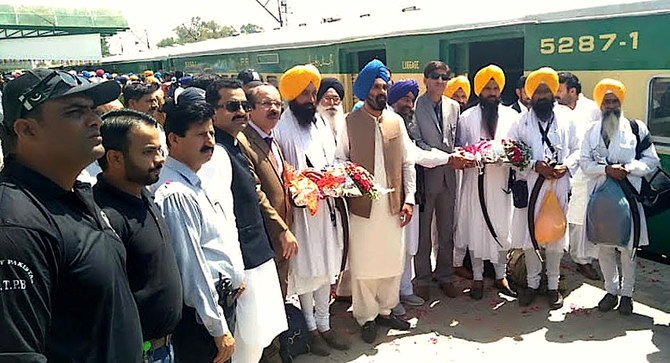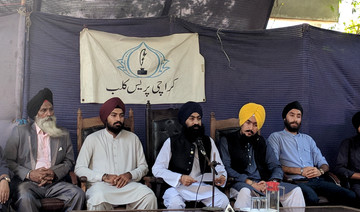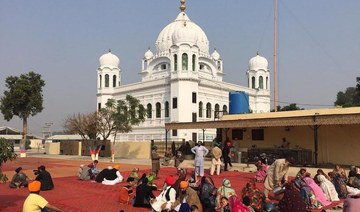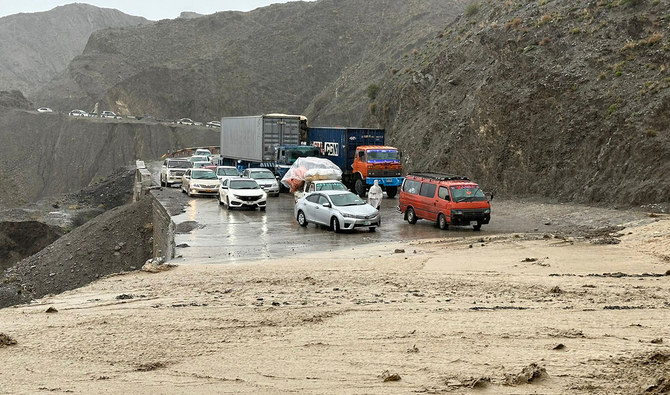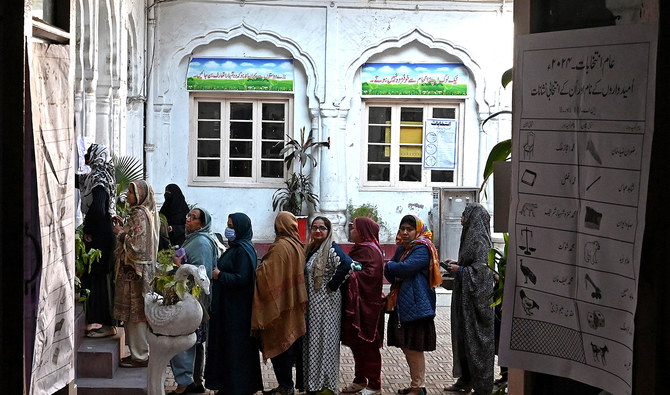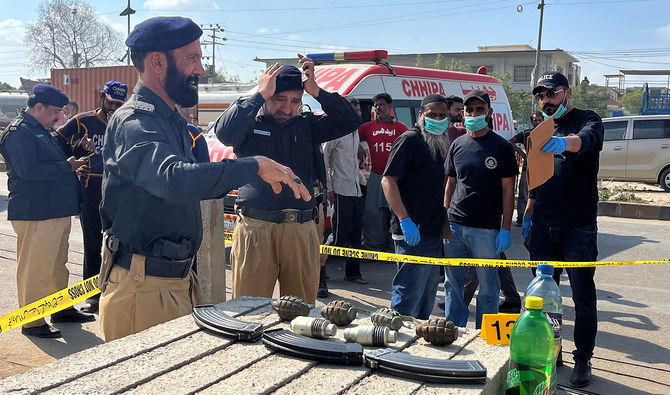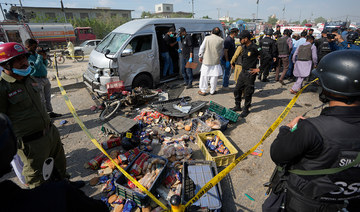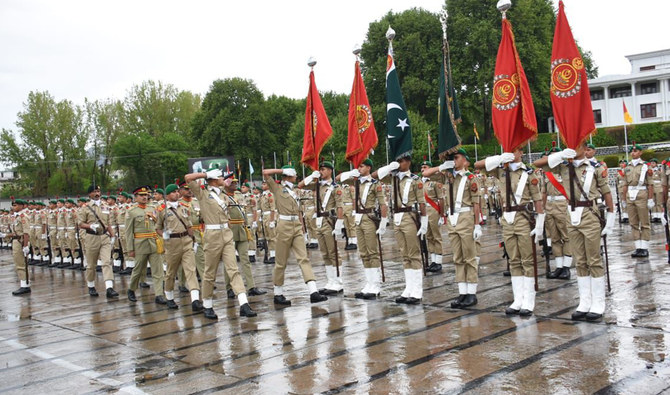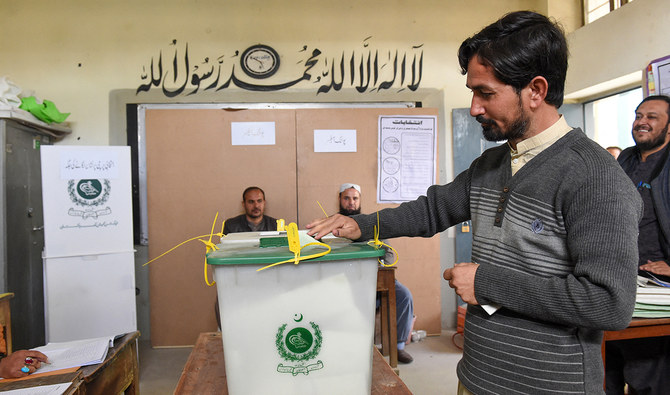WAGAH: A large group of Sikh pilgrims from India performed ritual baths at a famous temple in northwestern Pakistan, officials said, a day after arriving in the country to celebrate the harvest festival of Vaisakhi that marks the beginning of the Sikh New Year.
The Pakistan High Commission in New Delhi announced on Tuesday that it had issued around 2,200 visas to Indian Sikhs wanting to travel to Pakistan to participate in annual Vaisakhi celebrations from April 12 to 21.
Around 3,000 Sikhs in total have arrived for the festival from around the world, Amir Hasmi, a spokesman for the Evacuee Trust Property Board, told Arab News on Saturday, 1,896 of them from India.
The Board is responsible for the maintenance of properties, including religious buildings and sites, abandoned by people who left for India during the partition of the subcontinent in 1947.
On Saturday, several hundred Sikhs performed the cleansing ritual of ashnan, or bathing, at the Gurdawara Panja Sahib in Hasanabdal, a town located 40 km northwest of the country’s capital city, Islamabad. The shrine is one of Sikhism’s holiest sites and it is believed that the handprint of the founder of the religion, Guru Nanak, is imprinted on a boulder there.
“I am very happy and feel blessed that I am bowing my head at the door of my Guru,” said pilgrim Manjeet Singh who arrived from Delhi and visited Gurdawara Panja Sahib. “For a Sikh this moment is very sacred.”
On Friday, Sikh pilgrims were received at the Wagah border crossing between Pakistan and India by the chairman of the Evacuee Trust Property Board, Tahir Ehsan, as well as the president of the Pakistan Sikh Gurdwara Parbandhak Committee, Sardar Tara Singh, and other local Sikh leaders.
Sardar Ravinder Singh Khalsa, the head of the group of visiting pilgrims, said it was the ultimate desire of every Sikh to visit the religion’s holy sites like Panja Sahib, Nankana Sahib, and Kartarpur Sahib, which are located in Pakistan.
Last month, arch-rivals India and Pakistan agreed to go forward with the Kartarpur Corridor, a new border crossing and route for Sikh pilgrims to visit a holy temple in Pakistan.
The Sikh minority community in India’s northern state of Punjab and elsewhere has long sought easier access to the temple in Kartarpur, a village just over the border in Muslim-majority Pakistan.
Many Sikhs see Pakistan as the place where their religion began: its founder, Guru Nanak, was born in 1469 in a small village near Lahore.
But to get to Kartarpur, travelers must first secure hard-to-get visas, travel to Lahore or some other major Pakistani city and then drive to the village, which is just 4 km (2-1/2 miles) distant from the Indian border.
“We are very happy to come here,” Khalsa said at Wagah. “Kartarpur Corridor is a gift from the Pakistan government to the Sikh community. But we also request Pakistani authorities to provide more lodging facilities to Sikhs at Kartarpur and Nankana Sahib.”
Welcoming the pilgrims, Sardar Tara Singh said: “Our doors are open for every Sikh living in any part of the world and we have made adequate arrangements to facilitate the pilgrims.”



